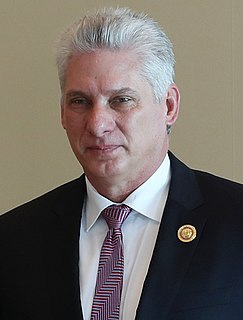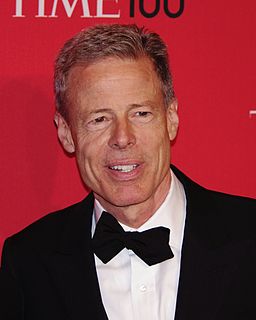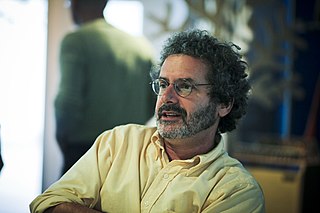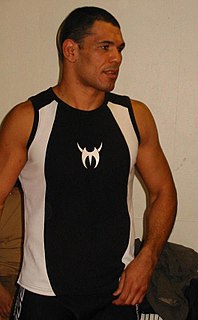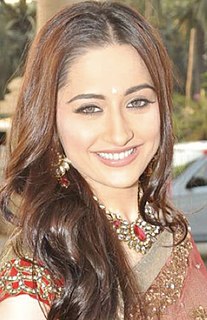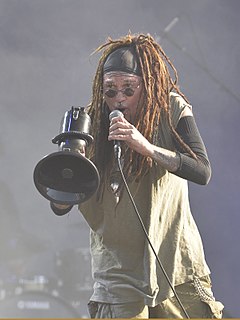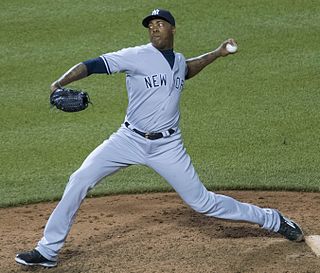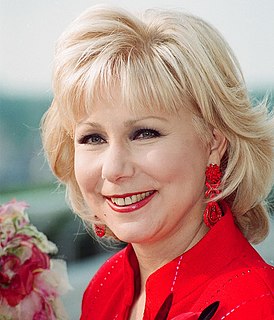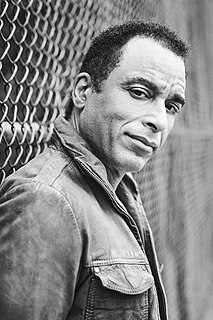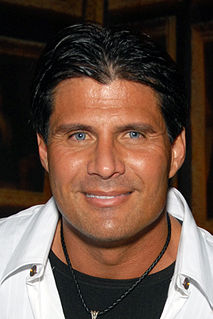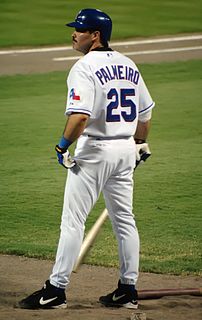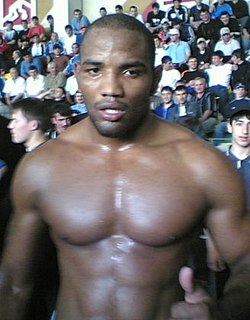A Quote by Miguel Diaz-Canel
OnCuba, in its digital platform, is very aggressive against the revolution. We are going to close it.
Quote Topics
Related Quotes
The cost reductions for renewable energy continue downward in a very dramatic way. We're in the early stages of a sustainability revolution in the globe that has the scale of the industrial revolution but the speed of the digital revolution. And you see it with renewable energy and you see it with LED lighting, which takes a fraction of the energy for the existing bulbs. All new lights are going to be LED. Electric vehicles. There are a lot of changes underway right now. I'm excited by the prospect, and I look forward to working in the months and years to come to accelerate this transition.
People over the age of thirty were born before the digital revolution really started. We've learned to use digital technology-laptops, cameras, personal digital assistants, the Internet-as adults, and it has been something like learning a foreign language. Most of us are okay, and some are even expert. We do e-mails and PowerPoint, surf the Internet, and feel we're at the cutting edge. But compared to most people under thirty and certainly under twenty, we are fumbling amateurs. People of that age were born after the digital revolution began. They learned to speak digital as a mother tongue.
If you want to be a great American, you have got to understand Ben Franklin, Thomas Jefferson, George Washington, how the American Revolution happened. I think if you want to be a good citizen of the digital age, it helps to feel comfortable with both the people and the ways of thinking that created the digital revolution.
Whether railroads or electricity or the Internet, there is always some sense that this is the new, redemptive platform - that finally, finally, we've found the platform that will allow us all to lead a democratic, global existence, where all problems will be solved. And the idea that the old platform becomes obsolete, "this kills that," and so on, also often accompanies the advent of a new technology. The digital platform is no exception.
